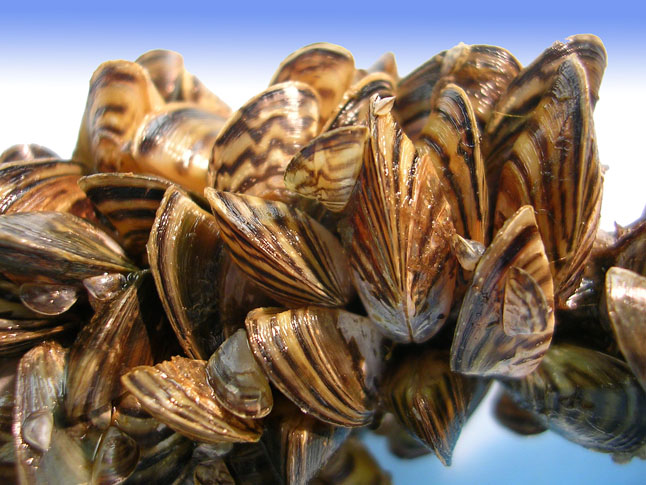
By David F. Rooney
In a move welcomed by environmentalists and even an Opposition MLA, the provincial government says it will spend $1.3 million on early-detection and rapid-response measures to prevent the entry into BC of highly invasive zebra and quagga mussels.
“The minister’s announcement today is great news in the combined efforts to help keep zebra and quagga mussels out of British Columbia,” Hamish Kassa, chairmen of the Columbia Shuswap Invasive Species Society said Tuesday. “The potential environmental and economic impacts would be devastating if these invasive mussels became established in the Columbia Shuswap region.”
“We, at CSISS, are very pleased that the Province of BC is taking action to prevent zebra/ quagga mussels from establishing in the region, CSISS Executive Director Natalie Stafl told The Current. “Mandatory boat inspection stations and decontamination sites as well as the promotion of Clean, Drain, Dry activities will be key in our effort to protect our lakes and rivers from the impacts of invasives.”
CSISS has worked with other regional invasive species societies and the Columbia Basin Trust to urge the province to guard against these creatures.
Posed with the waters of Lake Okanagan behind her, Environment Minister Mary Polak told reporters on Tuesday morning that BC will take steps to ensure that our lakes and rivers are protected from these creatures, which have not yet gained a foothold here.
These organisms have, in Ontario and Manitoba, shown that they are almost impossible to eradicated once they are established.
“This is a major step in our ongoing efforts to keep the province’s ecosystems, hydro stations, drinking water facilities and salmon populations safe,” Polak said. “It also provides specialized training and summer employment to university students specializing in environmental compliance.”
The program includes teams that will inspect and, if necessary, decontaminate boats entering BC from Alberta. They will also respond to boats from the US flagged as a concern by the Canadian Border Services Agency. Each crew will be equipped with mobile self-contained decontamination units.
Highway signage throughout the province will also be increased. Twenty-four new signs featuring the Clean, Drain, Dry program will be installed at significant entry points into the province.
Columbia River Revelstoke MLA Norm Macdonald called the decision “an important first step in the fight to ensure that we defend our lakes and rivers against zebra and quagga mussels.”
“There has been a tremendous amount of public pressure on government to take responsibility for ensuring that British Columbia’s waterways do not become infested with invasive mussels,” said Macdonald. “Other jurisdictions have been much quicker than British Columbia to take action, and that has been a huge concern.”
Ministry of Environment documents say that if zebra or quagga mussels become established here they could decimate sockeye salmon and kokanee fisheries as a result of the irreversible ecological challenges they could induce, he said.
But while Macdonald welcomed Polak’s announcement he warned that a lot of work is needed to meet the invasive species challenge
“It only takes one contaminated boat to infect a water body,” he said. “And once the infestation begins, it cannot be reversed… I’m happy to see that the government is taking some action, and that they intend to do so in time for this season. But the proof will be in the implementation of the plan, and whether or not the government chooses to extend and expand the program. One summer will not solve this issue. A commitment must be made by government to take this seriously, not just this year but permanently.”



